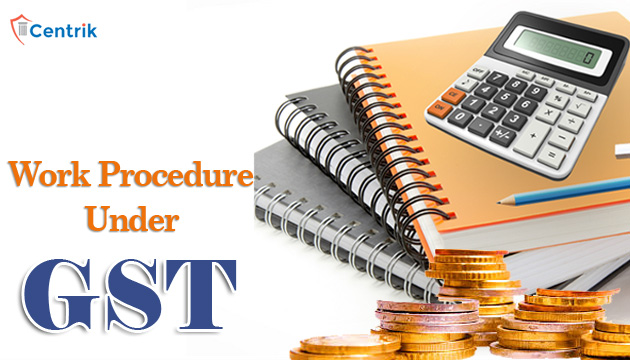
The purpose of this article is to create awareness about the soon to be implemented Goods and Service Tax in India. This article deals with job work related procedure under GST.
Statutory meaning
As per section 2(68) of the CGST Act “job work” means any treatment or process undertaken by a person on goods belonging to another registered person and the expression “job worker” shall be construed accordingly. So one difference between job work and works contract is that job work is in respect of movable property whereas works contract is in respect of immovable property.
As per schedule II, Any treatment or process which is applied to another person’s goods is a supply of services. So under GST job work would fall under the definition of services. This is very important to categorise any business into goods and services because compliance requirement at many places is different for goods and services.
The principal has two options with respect to the supply of goods to job worker for processing. These
- Supply with payment of tax
- Supply without payment of tax
Supply with payment of tax
Let us understand this with an example. The principal supplies goods worth Rs 20,000 on which applicable GST rate is 12%. He will collect Rs 2,400 from job worker as tax and pay it to the government. The job worker will get an input tax credit of Rs 2,400. Now suppose after 3 months the processing is complete and the job worker charges Rs 5,000 as his service charge and raises a bill of Rs 25,000 including charge excluding GST of suppose 18% on service portion. So he will collect a total GST of Rs 3,300 including 12% on processed goods assuming they also fall in the same category as unprocessed goods from the principal and utilize input credit of Rs 2,400 and pay balance 900 to the government. The principal who has earlier paid 2,400 as output tax will get a input tax credit of Rs 3,300.
Supply without payment of tax
In the above case if the principal supplies goods to the job worker without payment of tax job worker will only raise a tax invoice of Rs 5,000 after 3 months collecting a tax of Rs 900 from the principal which he will pay to the government. Principal will get input tax credit of Rs 900.
Though both the options are an available option will have greater costs because it will increase the working capital needs in the form of tax payment at an earlier date.
Procedure for supply without payment of tax
A registered person may under intimation and subject to prescribed conditions send any inputs or capital goods to the job worker without payment of tax.
He is required to bring back bring back inputs after completion of job work or after completion of one year from the date of sending goods without payment to the job worker. In respect of capital goods other than moulds and dies, jigs and fixtures, or tools the period allowed are three years.
He may also supply such inputs or capital goods other than moulds and dies, jigs and fixtures, or tools directly from the place of job worker within the aforesaid period of 1/3 years on payment of tax or export without tax payment.
The principal can make direct supply from the place of job worker only if he has shown place of job worker as an additional place of business. There are two exceptions to this requirement as under:-
- The job worker is a registered person or
- Principal is engaged in the supply of such goods as may be notified by the Commissioner.
If the inputs or capital goods other than moulds and dies, jigs and fixtures, or tools are neither returned nor supplied within a period of one/three years as aforesaid it shall be deemed that such inputs/capital goods had been supplied by the principal to the job worker on the day when the said inputs/capital goods were sent out. Consequently, the principal will be called upon to pay tax. The applicability of interest is a debatable issue and may depend on the facts and circumstances of the case.
Any waste and scrap generated during the job work may be supplied by the job worker directly from his place of business on payment of tax, if such job worker is registered, or by the principal, if the job worker is not registered.
The responsibility for keeping proper accounts for the inputs or capital goods shall lie with the principal.





 join For Updates
join For Updates
Hello Admin!
Such a great and informative post indeed on GST, I really appreciate it!
Keep updating stuffs like this.